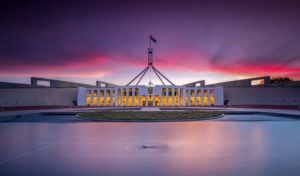
It is an election year after all, so why would we not expect a budget announcement with cash enticements? The total cost of this budget is forecasted at $17.1 billion over the next 12 months.
As Australia takes steps in the “post-pandemic” life, the Federal Government has the delicate task of repairing the nation’s debt versus managing the current inflationary pressures and rising cost of living. In his budget speech, Treasurer Josh Frydenberg, and the Morrison Government, predict that the unemployment rate will fall to under 4% in the next few months. This is an historic 50 year low and translates to more people now off unemployment benefits.
Good news right? Yes and No. As a nation we face the devastation and challenges due to natural disasters such as the recent floods. The government has already distributed $1.3 billion in cash relief, adding to the various stimulus packages of the past two years to combat the COVID-19 Pandemic. There are overarching themes however, with this budget being short sighted, aimed at winning an election which will add to inflationary pressures currently in the economy.
This may translate to be good or bad in various ways –
- Higher employment, equates to increased tax revenue from wages
- Decreased social security benefits and costs / savings for the Government
- Potential for more of the population to increase domestic spending for business goods and services (hopefully directed in the worst hit sectors of domestic tourism, travel and hospitality)
- The feeling of “more” to spend with cash payments and reduction in the cost of fuel through the lowering of the fuel excise or lower tax with up to $1,500 in tax offsets
- More spending or new spending by the newly employed or those returning to the workforce
- Increased demand for general goods and services, fuelling inflation, price increases and a rise in the overall cost of living
- Potential for property prices and the cost of fuel (as two examples) to continue to rise, contributing to increasing the cost of living
- Wage growth not increasing as quickly as the overall cost of living
- Potential for housing being unaffordable placing pressure on increasing residential rental costs
- Global hostilities and devastation in Ukraine resulting in an increase in oil prices and the amount you pay at the fuel pump when we fill our cars – unless you drive an electric car 😊
- Just when the Government thought they may have been done with handing out cash – the rain came in
- A total flood and recovery package is expected to exceed $6 billion including what has already been paid out. Be that as it may, the support is needed given the devastation that families and those in our community have endured.
There are genuine positives out of the above. With more of our population in active employment should be good for the overall economy. However other negative consequences may arise from this including –
- Increased demand on goods and services – increasing prices overall
- Greater supply issues for building materials – especially for flood effected areas
- Labour shortages – both skilled and unskilled – resulting in wage pressure and increases (however are they keeping up?)
- Higher demand for housing and property
- Increased interest rates which were already flagged by the Reserve Bank of Australia to slow the economy and inflation. Some banks have already started increasing interest rates
- Overseas conflict causes the Government to think strategically about its own security, which equates to increased spending on defence
- Support for the Government declines – or has declined

Is this the last tight rope act for the Morrison Government? That is for the nation to decide. However, it is a very delicate line between over stimulating the economy versus continuing to provide support and needed investment.
The key issues which the Federal Budget has provided are as follows –
- $5.6 billion in handouts to ease the cost-of-living pressures for welfare recipients – a one-off $250 cash payment to commence within weeks
- Low and middle income earners will get an increase in the low and middle income tax offset (LMITO) by $420. This lifts the LMITO for the year ended 30 June 2022 to $1,500 (up from $1080) for individuals and $3,000 for couples. Taxpayers will be able to access the increased LMITO from 1 July 2022, upon lodgement of their income tax return for 2021-22 income year. This would benefit most individuals with incomes of up to $126,000
- Temporary Fuel Excise relief – a reduction of 22.1 cents per litre for six months
- Increased access to the Paid Parental Leave scheme from 1 March 2023, integrating Dad and Partner Pay and Parental Leave Pay to allow eligible families access to up to 20 weeks leave
- Commitment of $1.3 billion to drive change to end violence against women and children
- Expansion of the Home Guarantee Scheme for an additional 50,000 places – double the current number of places available
- Reduction in the PBS Safety Net Threshold for medical prescriptions as well as more PBS listings
- Providing businesses that spend on improving digital capabilities and training/upskilling employees with an extra 20% deduction. This will apply to eligible businesses with an aggregated turnover of less than $50 million
- Changes to PAYG installment system to provide a temporary cash flow relief for small business, sole traders and investors. The measure will reduce the GDP uplift for PAYG and GST to 2% down from 10%, commencing from the quarter ended 30 September 2022
- $2.8 billion spent on building a skilled workforce, with $5,000 payments for new apprentices and $15,000 payments for employers who employ these apprentices
- Prioritising rail and road projects across Australia, totalling $17.9 billion
- Regional accelerator program of $2 billion
- Investing $9.9 billion in Australia’s intelligence and cyber security capabilities
- Superannuation has been left unchanged with the exception of 50% reduction in the minimum pension drawdown percentage extended to 30 June 2023.

Full details of the budget announcements can be found here – https://budget.gov.au/index.htm
Our team are here to help and provide you with any clarity on the Federal Budget. Simply call us on 03 9374 8400 or email our team to discuss.
MKS Group.

